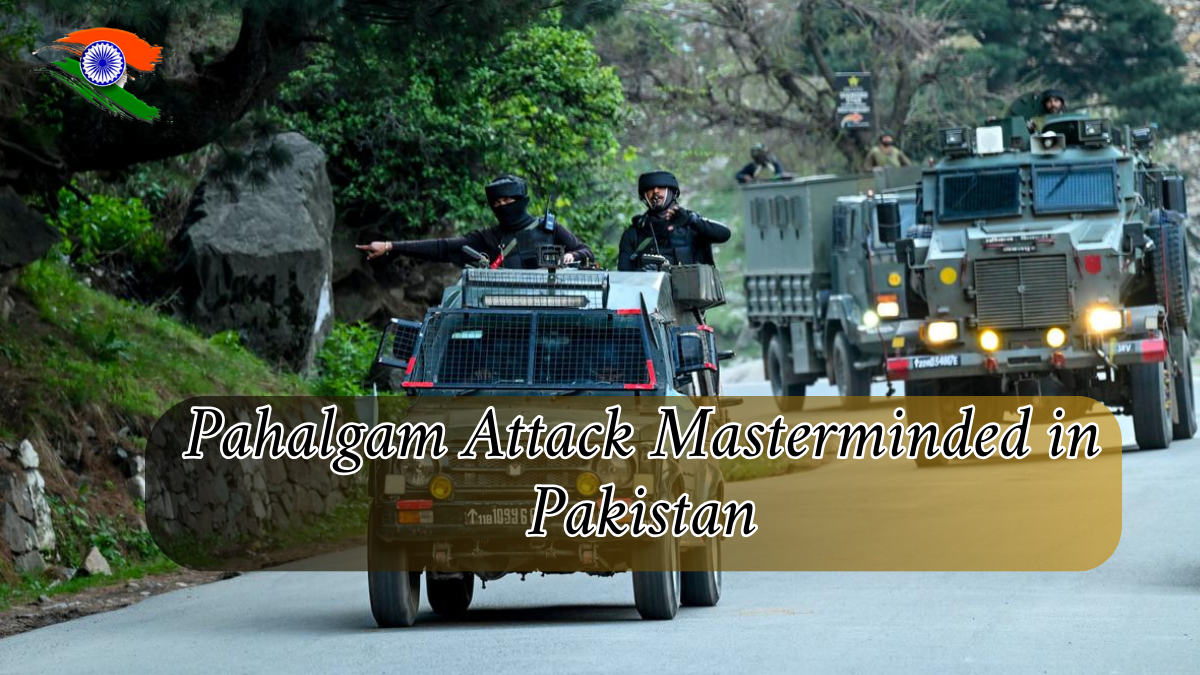The recent terrorist attack in Pahalgam, Kashmir, has once again drawn attention to cross-border terrorism originating from Pakistan. As investigations unfold, it has been confirmed that the brutal attack was orchestrated by handlers of the Lashkar-e-Taiba (LeT) operating out of Pakistan. Several critical revelations have emerged that provide insights into the training, movement, and identities of those involved.

Summary Table: Pahalgam Terror Attack
| Details | Information |
|---|---|
| Attack Location | Pahalgam, Kashmir |
| Planned by | Lashkar-e-Taiba, Pakistan |
| Mode of Training | Barsoom Valley, Pakistan |
| Infiltration Route | 20–22-hour foot journey from Kokernag forests |
| Terrorist Groups Involved | Lashkar-e-Taiba, Jaish-e-Mohammed, Hizbul Mujahideen |
| Number of Terrorists on Hit List | 14 Identified |
| Action Taken | Properties of terrorists demolished, high-alert security measures initiated |
| Official Source | Ministry of Home Affairs |
Full Details of the Pahalgam Attack Investigation
The terrorist attack that shook the peaceful town of Pahalgam in Kashmir was not an isolated incident but a meticulously planned operation. Intelligence reports have confirmed that the planning and training for the attack took place in the Barsoom Valley in Pakistan. Terrorists associated with Lashkar-e-Taiba received specialized training to carry out the bloodshed.
Investigators have pieced together that the terrorists infiltrated Indian territory on foot, enduring a grueling 20–22-hour trek through dense forests from Kokernag to Pahalgam. En route, they forcibly took mobile phones from both a local Kashmiri and a tourist, presumably to coordinate their movements and evade detection.
14 Top Terrorists Identified in Connection with the Attack
Following an intensive investigation, Indian security agencies have published a hit list containing 14 key terrorists associated with groups like Lashkar-e-Taiba, Jaish-e-Mohammed (JeM), and Hizbul Mujahideen. These individuals are regarded as masterminds behind various terrorist activities in Jammu and Kashmir.
List of Terrorists
- Adil Rehman Danto — Origin: Sopore
- Ehsan Ahmad Sheikh — Origin: Pulwama
- Haris Nazir — Accused in Pulwama attack
- Nasir Ahmad Wani — Origin: Shopian
- Shahid Ahmad Kute — TRF Commander, Shopian
- Amir Ahmad Dar — Affiliated with TRF
- Adnan Safi Dar — Affiliated with TRF
- Zakir Ahmad Ghani
- Asif Ahmad Sheikh — Origin: Awantipora
- Amir Nazir Wani — Origin: Pulwama
- Yawar Ahmad Bhat — Origin: Pulwama
- Asif Ahmad Khande — Origin: Shopian
- Zubair Ahmad Wani — Operational Commander in Anantnag
- Haroon Rashid Ghani
These individuals are currently the focus of a major counterterrorism operation aimed at dismantling the network responsible for the Pahalgam attack and other violent incidents in the region.
Action Being Taken Against Terrorists
In response to the attack, stringent measures have been initiated by security forces across Jammu and Kashmir. One such step includes demolishing properties linked to active terrorists.
Recently, the house of Adnan Shafi, a listed terrorist, was demolished in Wandina, located in Shopian district. Security agencies are also increasing their intelligence-gathering operations and conducting raids in various vulnerable regions to apprehend the listed terrorists.
However, political leaders have urged the central government to exercise caution, ensuring that innocent civilians are not targeted during security operations.
Political and Public Response
Political parties across the spectrum have condemned the Pahalgam attack and expressed solidarity with the victims. Several leaders emphasized the need for precise and focused counterterrorism actions rather than sweeping measures that could harm ordinary citizens.
Public sentiment strongly supports tough action against terrorists while maintaining safeguards for human rights and rule of law.
Impact on Security Protocols
Following the Pahalgam attack and the subsequent revelations:
- Security around pilgrimage routes, such as the Amarnath Yatra path, has been tightened.
- Enhanced patrolling and checkpoints have been established around sensitive areas.
- Surveillance operations using drones and satellite technology have been intensified.
- Public advisories have been issued to stay vigilant and report any suspicious activities.
Future Measures Against Terror Activities
The government is contemplating several long-term measures, including:
- Strengthening cross-border surveillance.
- Diplomatic efforts to expose Pakistan’s role at international forums.
- Introduction of stricter laws targeting terror financing.
- Comprehensive rehabilitation programs for vulnerable youth to prevent radicalization.
FAQs about the Pahalgam Terror Attack
1. Who was responsible for planning the Pahalgam terror attack?
Ans. The attack was planned by handlers of the Lashkar-e-Taiba based in Pakistan.
2. How did the terrorists infiltrate into India?
Ans. They traveled on foot for approximately 20–22 hours through dense forests from Kokernag to reach Pahalgam.
3. How many terrorists have been identified?
Ans. A total of 14 terrorists connected with Lashkar-e-Taiba, Jaish-e-Mohammed, and Hizbul Mujahideen have been identified.
4. What action has been taken against terrorists so far?
Ans. Properties of known terrorists have been demolished, security operations are underway, and a high alert has been declared.
5. How can citizens help security forces?
Ans. Citizens are encouraged to stay vigilant, cooperate with security agencies, and report suspicious activities through official helplines or local police stations.
Conclusion
The revelations following the Pahalgam terror attack underline the persistent threat posed by Pakistan-backed terrorist organizations. India’s response—swift, firm, and within the framework of law—aims to ensure peace and security in the region. With 14 terrorists now on the official hit list and operations underway, the government and security forces are determined to dismantle terror networks operating in Jammu and Kashmir.
The country stands united against terrorism, reaffirming its commitment to preserving national integrity while upholding human rights.
For continuous updates and official statements, visit the Ministry of Home Affairs official website.